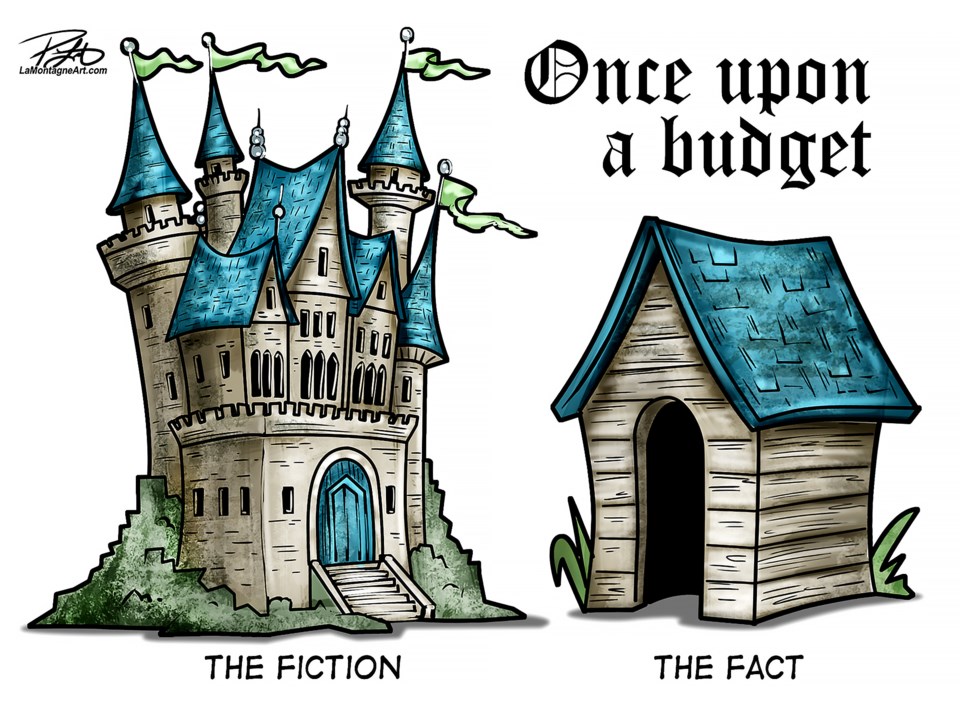The non-stop deluge of pre-budget announcements by the federal government has largely focused on housing needs across the country.
In what is expected to be a predominantly housing-related funding budget, April 16 serves to highlight the federal government’s goals and priorities, particularly when it comes to the construction of new homes.
A common theme in the pre-budget announcements is a carrot and stick approach, the federal government is also ramping up the already contentious relationship between the feds and many provinces.
The federal government’s message is: if you want federal dollars, you need to follow its rules, guidelines and expectations and not expect a blank cheque to be dropped off at your door.
While provinces have said it’s an overstep, with Alberta housing minister Jason Nixon declaring Alberta won’t be bribed with federal money, it’s a continuing step of both the federal and many provincial governments putting a caveat on funding.
The province has also stated it will introduce legislation to stop the feds from agreeing to deals with municipalities without provincial approval, which comes a few months after it asked for all municipal-federal agreements in place.
Regardless of which provinces and to a certain extent municipalities buy-in, billions will be flying out the door to address housing needs.
An extra $15 billion will be pumped into the Apartment Construction Loan Program to push development of rental units after it received $15 billion at the last fall economic statement.
The $4 billion nationwide Housing Accelerator Fund had similar stipulations of municipalities needing to achieve benchmarks and its $400 million top-up will have the same conditions.
The Town of Banff – a recipient of $4.66 million from the fund – has welcomed the opportunity, while the Town of Canmore has very publicly declared the funding with the stipulations isn’t for them.
A similar $6 billion Housing Infrastructure Fund to assist with necessary water, wastewater, stormwater and solid waste system improvements as housing is constructed across Canada will also be part of the budget.
Of that, $1 billion will be immediately available and the remaining $5 billion will go to provinces that agree to a series of requirements such as changes to the National Building Code to promote more environmentally-friendly and affordable housing, allowing more density and permitting as-of-right building when developments comply with existing zoning approvals.
The Canada Mortgage and Housing Corporation (CMHC) estimated last fall that 3.5 million new residential units would be needed by 2030.
In addition to high-priced housing announcements, a $1.5 billion Rental Protection Fund and a renter’s bill of rights for a national standard lease agreement to possibly give renters more ability to negotiate rent have also been stated as coming.
A March CMHC report outlined an influx in new apartment buildings has aided in housing construction in larger cities, but demand continues to be greater than supply.
Though the federal government has continued with necessary housing announcements and a national school food program, both would need provincial governments to buy-in to the programs.
The national school food program has the federal government committing $1 billion over five years, but Canada’s the lone G7 country without such a program.
The pre-budget announcements have led to the usual sniping back and forth between the incumbent Liberal government and the Conservative opposition.
The carbon tax has continued to be a lightning rod for the Liberal government, with many provinces like Alberta and Ontario calling for its outright banishment and others like Newfoundland and Labrador asking for provinces to have more flexibility in reducing emissions.
Though the federal carbon rebate is anticipated to ultimately give people more money than they expend on the added gas prices – with a single adult Alberta resident receiving $225 or a family of four $450 every three months – anyone in communications will tell you when you have to start explaining how a policy works the messaging has already gone awry.
Though holding a minority government, the NDP and Liberal supply-and-confidence deal will likely ensure the budget receives the necessary majority to move forward.
As with any budget, it’s not the number of photo ops or declarations that it’ll be remembered for but what it delivers.




